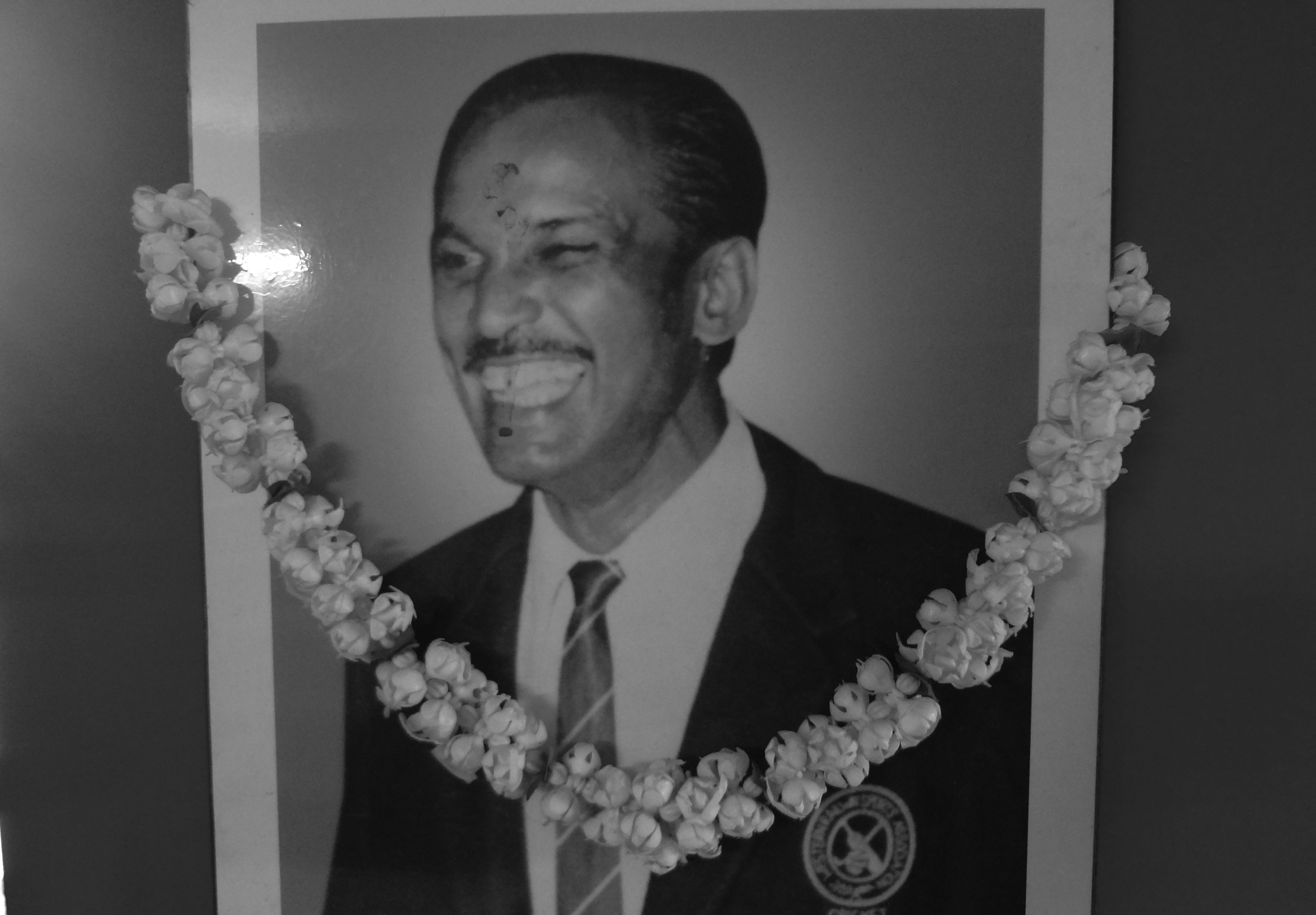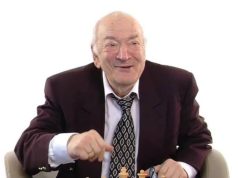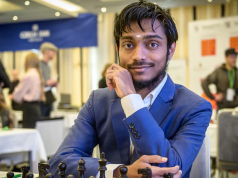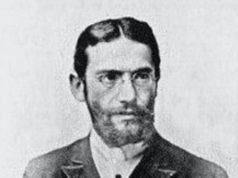The 2005 Hindi movie Iqbal, directed by Nagesh Kukunoor, starts with the routine disclaimer, “All characters in this film are fictitious and bear no resemblance to any community or person……”. But was the story really that fictional? The makers of the film was perhaps not aware that there was a man who, in the late 1950s, stirred the Indian cricket scenario with his powerful cricket. The man was popularly known as Baba Sidhaye and just like Iqbal, he was ‘Deaf and Mute’. So, Baba Sidhaye can be referred to as the real-life Iqbal.
Yeshwant ‘Baba’ Sidhaye was born on 10th April, 1931 at Ahvaz-Abedan in Iran. His father, who was settled in Iran, never thought of returning to India. But when his youngest son was born deaf and mute, he decided to come back to his homeland to provide better facility to his son. Thus, the Sidhaye family settled in Pune leaving their fortune in Iran.
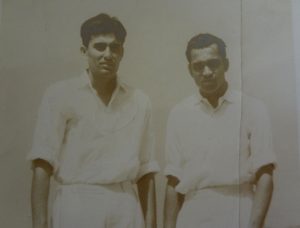
As a child, Yeshwant was interested in all sports. His parents along with his three elder siblings encouraged him to play, as they thought that it was the best way through which he can make a statement. While in Bhave High School in Pune, his cricket skill was noticed by test cricketer Sadashiv Ganpatrao Shinde better known as leg spinner Sadu Shinde. He advised him to concentrate on cricket. So, at the age of 14, Yeshwant Sidhaye started to play serious cricket and soon, after 4 years he was selected in the state team to play Ranji Trophy.
Sidhaye was a right-hand middle order batsman and a right-arm leg break bowler in the Maharashtra Ranji team. From the beginning
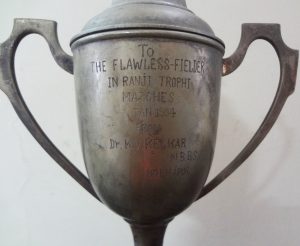
he was an attacking batsman and a marvelous fielder. His agility while fielding gave him the nickname ‘Panther’. Bapu Nadkarni who played many innings along with him, still remembers fondly about Baba Sidhaye’s fielding ability. Though severely ill, he spoke, “Baba was a very gifted fielder. Under my captaincy he scored some brilliant centuries but his fielding was most talked about. He did not let any ball to pass by him.”
Baba Sidhaye had appeared in 42 Ranji matches; first for Maharashtra (1950-1954), then for Bombay (1954-1955), after which he returned to play for Maharashtra (1955-1960). Later he shifted to Railways (1960-1966) where he was employed. He scored 1417 runs, at an average of 24.86, with 1 century (135) against Baroda at Nasik in 1956-57. He also scored 7 half centuries and took 29 catches in his career. Sidhaye also played for Maharashtra in Duleep Trophy and represented his state against touring visiting teams from New Zealand, Australia and West Indies. He also had a short cricketing stint in England where he played for Stockport Cricket Club in Lanchashire.
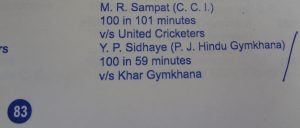
Baba Sidhaye’s prowess in cricket field is still been told and retold in Mumbai’s cricketing circles. It is often heard that Baba, during those days of test cricket, was able to hit 12-15 sixes in a single match. He even has a record of hitting a century in 59 minutes while playing a first class club match in 1964. Once he also hit a ball so hard while playing at the P J Hindu Gymkhana near Marine Lines that it dropped into the Arabian Sea and could not be traced.
Pravin Sidhaye, the only son of Baba Sidhaye, recollects, “My father never had any problem in communicating. He lip read so well that he understood everything. Moreover he used his perception to the maximum.”
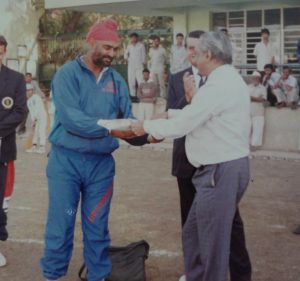
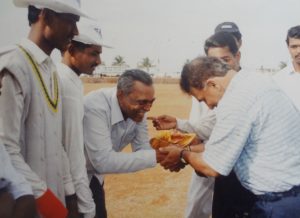
After a successful career as a player, Sidhaye took up the job of coaching. He coached in various clubs and even in special training camps. It was in one such camp Baba Sidhaye spotted young Balwinder Singh Sandhu who later went on to play for India and was also an important member of World Cup winning team in 1983. Balwinder remembers, “He was a very good teacher. We never had any problem in understanding his language. I was young at that time so could not understand the value of his teaching at that age. But later, those lessons proved to be very important for me to grow as a cricketer.”
But this exceptionally talented cricketer could not make his way to the national team. Perhaps, he was a victim of discrimination at that stage. But Baba played with his heart and soul, made a strong statement and was an inspiration to many like him. Among his many awards, one that is precious is the inclusion of his name in Limca Book of Records. He was also honoured by World Human Rights Protection Association (WHRPA) and United Nations (UN) for his contribution in the field of cricket as the first and only born deaf and mute cricketer in the world.
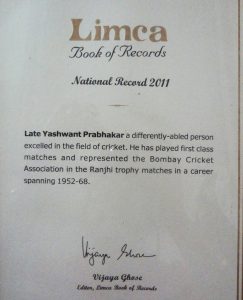
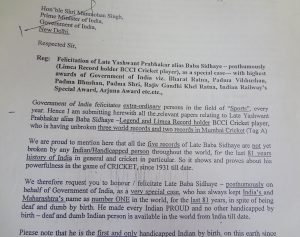
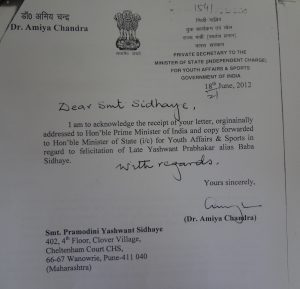
Baba Sidhaye loved cricket, he dreamt about cricket and was dedicated towards the game. Though he suffered from Berger’s disease (blood circulation problem) since 1975, he never missed going to the field for a single day. It was on 24th November 2002 Baba Sidhaye breathed his last. Though in his eventful life he had no regret, it was during his last few days, he expressed his wish to have a government recognition in the form of Arjuna Award.
Since then, Pravin Sidhaye, being his only son, is fighting to fulfill the last desire of his father. A series of letters, applications, court orders has been forwarded by him to the Indian government and the BCCI. But, apart from receiving receipt acknowledgement, there is no other response from the authority. Letters have been submitted to the Prime Minister Office (PMO) too but there the case has been closed after forwarding the letters to the BCCI.
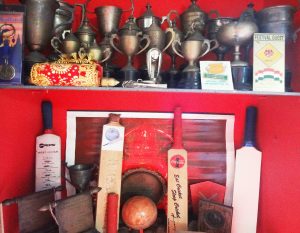 “I will fight for my Baba’s recognition till the last day of my life. What else can I do except hoping for the best. My father is an inspiration. He showed the world how to live life in spite of having serious disability from birth. I know that one day the authority will surely understand his contribution to cricket and the society as well,” declared Pravin Sidhaye.
“I will fight for my Baba’s recognition till the last day of my life. What else can I do except hoping for the best. My father is an inspiration. He showed the world how to live life in spite of having serious disability from birth. I know that one day the authority will surely understand his contribution to cricket and the society as well,” declared Pravin Sidhaye.

